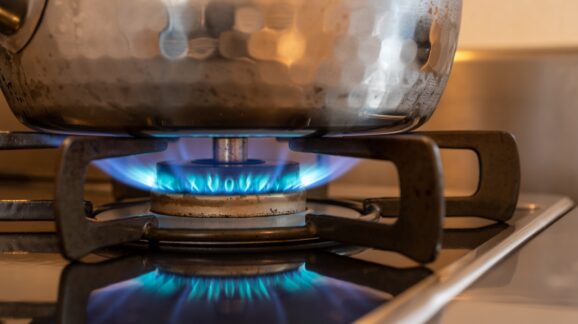21 cents worth of stupid in the Department of Energy’s latest stove proposal

Photo Credit: Getty
The good news is that the Biden Department of Energy’s (DOE) latest proposed efficiency regulation for residential stoves is considerably less damaging to consumers than the version floated last year. But, as CEI explained in our June 3 comment to the agency, it’s still a bad idea, violates the law, and should be withdrawn.
Last year’s proposed stove rule was part of a thinly-veiled regulatory assault on gas stoves in favor of the electric versions in vogue with climate activists inside and outside the administration. As we discussed in our coalition comment to the agency on April 17, 2023, the original proposal would have jeopardized many of the features that have made gas cooking the preferred choice of 38 percent of homeowners. This includes the high heat settings needed for such tasks as searing and stir frying as well as heavy-duty grates. Other commenters noted longer cooking times as well as other likely problems with compliant gas stoves. Note that the underlying statute, the Energy Policy and Conservation Act of 1975 (EPCA), does not allow the agency to set efficiency regulations that compromise appliance quality, features, and choice.
DOE apparently agreed with these criticisms. The agency has shelved the original proposed rule in favor of the current one which is weaker and thus poses fewer technical difficulties for gas stoves. However, by addressing one problem, the new proposal has exacerbated another by further reducing the already-modest energy savings from stove regulations. Because EPCA expressly forbids promulgating efficiency standards that fail to result in significant conservation of energy, the proper course of action would be for DOE to withdraw the proposed rule and give up on meddling with stoves.
Specifically, the original proposed rule would have saved only $21.89 over the estimated 14.5-year life for a gas cooktop, or $1.51 per year. But the new, less stringent version only saves $3.09 over that span, or a mere 21 cents per year. Granted, the statute does not quantify “significant conservation of energy,” but 21 cents per year does not pass any rational interpretation of this requirement.
The agency also claims climate change benefits, but these cannot be used to rescue the rule from insignificance. EPCA does not allow the agency to subordinate the best interests of consumers to an environmental agenda. And in any event, those claimed benefits are highly suspect as they are based on unreliable estimates of the social cost of carbon.
In sum, the purpose of the appliance efficiency program in EPCA is not regulation for its own sake, nor regulation in pursuit of an environmental agenda, but regulation towards the goal of improved efficiency consistent with consumer utility. As we have seen with DOE’s first proposed stove rule and now with its second, the only way to avoid a standard that compromises gas stove quality is to set one so weak that it delivers insignificant benefits to consumers. The law fully contemplates – and indeed requires – that some appliances would not be subject to energy use limits, and this should include residential stoves. It is time for DOE regulators to leave our kitchens alone.